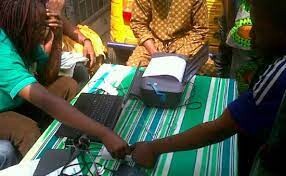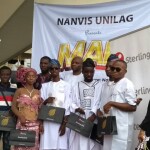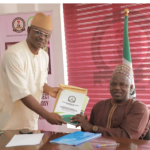By Gbenga Ogundare
In about five years after its establishment, the National Commission for Persons With Disabilities (NCPWD) has yet to accomplish one of its primary reasons for existence.
The commission is not holding anyone responsible yet. Like always.
“As you may be aware, some data management organisations have postulated that that the number of persons with disabilities range from 15 million to 28 million,” Soji Adewale, the commission’s director of planning, research, and statistics, said in Abuja on October 5. The commission’s Executive Secretary James David Lalu claims over 30 million when he finds it convenient.
Section 38(f) of the Discrimination Act provides that the commission shall: Collect data and records on special education of persons with disabilities, which shall be a regular exercise so that the persons with disabilities are identified, and enumerated for planning and treatment.
Adewale underplayed the import of the commission’s failure here. He succeeded in talking down the irresponsibility of relying on some other body to provide the data, despite an annual budget the commission has been committing to data collection since 2021. But Nigerians with disabilities who don’t know how many they are feel the pain of neglect that results from poor planning for their rights and benefits.
Many of them blame the commission.
“You will agree with me that most of these people in the NCPWD get there on the basis of whom they know. They don’t know what they are supposed to do,’ said Olufemi Bayode, a member of the Nigeria Association of the Blind, Lagos.
“So because they don’t, they won’t ask questions.” By that, the data analyst means accountability, in all its ramifications. And that is why the commission should have scruples quoting the figure of some data management organisations.
The NCPWD 2023 budget stands at N1.699 billion, the lowest in three consecutive years. Of that, only 25 percent (N410.7 million) went for capital expenditure. The commission budgeted N30 million for data collection that year. The amount fell N30 million lower than the 2022 vote for data collection—out of the N3.17 billion, the biggest budget so far, the federal government approved for the commission. In 2021, the data collection vote stood at N80 million, of the N1.79 billion budget approved for the entire commission.
With about N170 million forked out for data collection in three years, the NCPWD can’t give, with authority, consistent data of PWDs in Nigeria. This even takes for granted the digital disability certificates it claims it produces and issues every year.
ER in an interview request months ago asked for the state of the PWD data collection. The commission has yet to respond to that and other questions.
If it’s about excuses, it has lots of them. While commissioning a couple of projects on the NCPWD headquarters premises in 2021, Sadiyat Sodiq helped the commission out. The immediate past minister of humanitarian affairs supervising the commission (the Act puts it under the President) alluded to scarce resources.
Others, too, have made a point of scarcity.
“In specific terms, the NCPWD has not been given adequate resources (financial and technical) which are needed to translate government services and actions into systems that equally drive the representation and participation of Nigerian with disabilities,” the Joint National Association of PWDs said in a June press release.
It is not impossible the budgets don’t get full funding. But the commission’s procurement system makes it difficult to know which fund the government releases for which line item. Why that happens to a critical function like data collection, the discrimination it highlights, should have made Adewale and others rock the boat. And it could have been easy if the commission itself had acted above the board.
Since its creation, the NCPWD had no procurement department until September 2021. Even with that, Nigerians cannot still track the funding and spending going on in the commission. Only one item of spending by the commission is available on BudgIT, a public finance watchdog that tracks government spending in Nigeria. The amount is N15 million; the 2023 project is not specified. Other procurement monitoring groups and accountability CSOs have no detail on the commission’s procurement. And it publishes just about two of its invitations to tender online over the years.
Section 43 of the Act permits the commission to have such department as it deems necessary. Maybe that explains the no-show performance by the NCPWD’s procurement department. But Section 22 of the Public Procurement Act 2007 expects all MDAs to have a procurement department to ensure value for money, among other purposes.
All things considered, the NCPWD opacity doesn’t help.
The disability community it serves is a minority group in Nigeria, suffering inequality and retrofitting of policies that matter to the PWDs. Not asking questions, as Bayode pointed out, only shows the level of apathy by stakeholders and PWDs—to how the commission does what it does, especially in the matter of data collection.
During the Abuja Human Rights Radio programme where he featured, the NCPWD official noted the commission is not relenting.
“Due to the growing population of persons with disabilities in Nigeria, the commission is willing to partner with all interest groups to provide accurate data.” Adewale said.
The decision was coming after the online registration portal initiative and the Covid-19 palliative registration drive. Both efforts probably didn’t work. “The disability clusters ought to have been the starting point,” the data analyst told ER. According to him, there is no way staffers who know nothing about data gathering, statistics and all that can coordinate such a project. It does not matter the size of the budget they propose or the funding they get.
The first time data collection popped out as a line item in the 2021 budget, the commission planner tagged it ‘new’. It’s been ‘ongoing’ since then. The Act provides for it. But there has been no definite result to prove a bang for all the bucks the commission collected (or didn’t) to execute the project.
The ineptitude can go on for as long as possible.
And the community continues to miss out on policy and planning.







